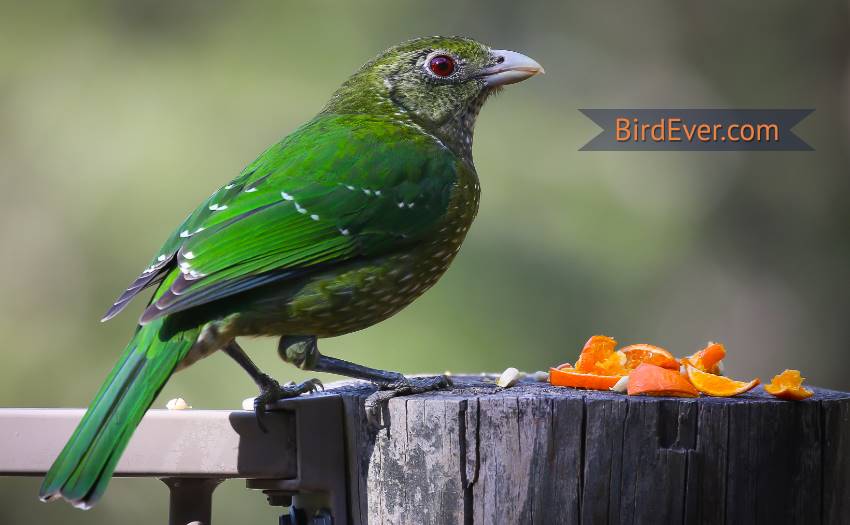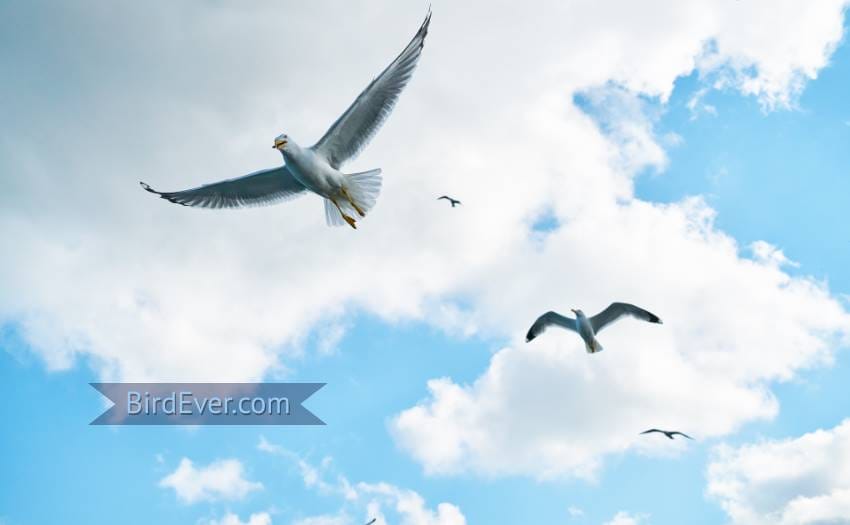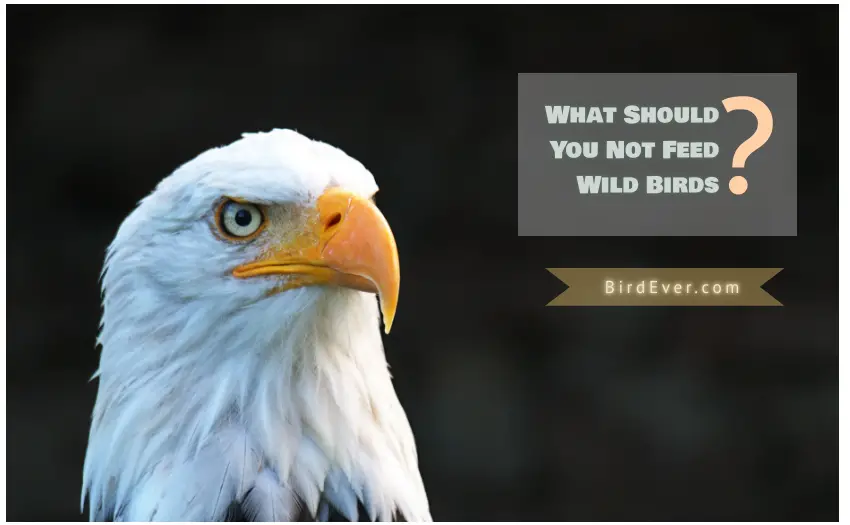What Should You Not Feed Wild Birds? 9 Unsafe Bird Foods
It is important to know the signs of bird distress and how to help them. One thing you can do is make sure that you are not feeding wild birds things that may be harmful to them. Here’s a list of 9 unsafe bird foods and what they contain.
9 Foods To Avoid For Wild Birds
If you are one of those people who love watching the colorful wild birds, then a little care can go a long way. It’s always good to give these backyard birds something healthy to eat. But what should you feed them? And what we shouldn’t? Let’s check them out.

1. High Sugar
The foods which are high in sugar or corn should not feed to wild birds. Because, just like us, the birds can often get a sweet tooth. And when it comes to fetching food for their babies, they’ll automatically go after anything that tastes good to them and is high in sugar will just be one more thing on the menu!
For example, Fruit pits and vegetables. These are natural foods for birds. But they contain high levels of sugar which can make them sick if you feed them regularly.
2. The Sticks
Birds may love taking sticks of muesli or cornflakes with them but these won’t benefit you at all. Although they might last longer than actual bird food, all this will do is cause them to get hooked on them. A day will not be far away when they won’t eat anything else.
3. The Peanut Butter
So what? It’s nuts for humans but it’s even worse for wild birds. As the taste doesn’t diminish with time making it last forever. Though at some point the stickiness might help lure an animal it is not recommended as bird food.
4. The Flour and Corn On The Cob
This may sound alike but it’s not. You want to watch out for the dangers lurking in flour and corn on the cob due to which their crop will fail. And this means that you won’t be feeding these birds anything as they’ll need a nutritious diet, thus becoming very hungry once again because of having nothing to feed them with!
5. The Chicks
There are many reasons why you should not feed chicks to wild birds. Chickens and other poultry can introduce parasites, diseases, and weeds into the environment. They can also damage trees and other plants by eating their leaves or scratching in the soil.
Feeding chicks to wild birds also teaches them to forage for food, which can lead to problems when they become adults. Foraging can disturb natural prey populations, leading to a decline in the number of animals that these birds can eat.
6. Commercial Pellets
Commercial pellets can cause digestive problems, weight gain, diarrhea, malnutrition, and even death in some cases. They can also lead to serious health problems such as liver disease and cancer.
Feeding commercial pellets to wild birds can also disrupt their natural diet and breeding habits. By providing them with food that is not natural or tailored to their needs, you are potentially putting them at risk for health problems and decreased reproductive success.
7. Bird Seed
This is a common food that many people give to their birds. Nonetheless, it is not good for them. It contains high levels of sugar and other unhealthy ingredients that can harm the birds’ health. Moreover, birdseed is not natural and contains ingredients that are harmful to the birds’ digestive systems.
8. Dairy Products
Dairy products contain hormones, antibiotics, and other chemicals that can disrupt the natural balance of a bird’s diet. These toxins can also cause serious health problems such as weight gain, infertility, liver disease, and cancer.
Feeding dairy products to wild birds also encourages them to build nests in which they can lay eggs contaminated with these toxins. Not only is this unsightly. Nevertheless, it can also lead to the death of the birds who build the nests.
9. Sugary Snacks
First of all, these snacks contain high levels of sugar which can quickly become addictive for the birds. In addition, these snacks often contain unhealthy fats and additives that can damage the birds’ health.
Another reason why feeding sugary snacks to wild birds are dangerous is that it disrupts their natural diet. By replacing natural food sources with artificial junk food, the birds may develop nutritional deficiencies or obesity.
In conclusion, feeding sugary snacks to feathered friends is not only irresponsible but also dangerous for their health.
FAQs
What Should You Not Feed Wild Birds? To learn frequently asked questions on this topic or related bird feeding issues, check the quick answers.
What are some common examples of wild birds?
Most birds that we typically see in the wild are familiar to us such as Magpies, Crow, and Flickers. Additionally, there are many species of birds that we do not see in the wild such as Sparrows, Finches, and Jays.
Why are different feeders for wild birds?
There are many different types of feeders for wild birds because each bird has its own specific diet and needs.
Some common types of feeders include:
1. Seed feeders: These feeders dispense a variety of seeds, such as sunflower, millet, or safflower. They are popular among songbirds, including warblers and vireos.
2. Nectar feeders: These feeders dispense nectar from flowers like blue jays, cardinals, and hummingbirds. They are popular among birds of prey like hawks and eagles.
3. Fruit feeders: These feeders dispense fruit like apples, pears, or grapes. They are popular among woodpeckers and orioles.
What ideal food can I feed wild birds to ensure nutrition?
To keep the nutritional value, the best food for wild birds can be water, cooked beans, wheat germ, cracked corn (without the hulls), and sunflower seed.
Is avocado harmful to wild birds?
Avocados are not harmful to wild birds. In fact, they can be beneficial because they provide them with a healthy food source. Avocados are high in healthy fats and proteins, which can help keep the birds’ feathers healthy. Also, their digestive system works properly.
What scraps can I feed wild birds?
There are many scraps that can be fed to wild birds. These include:
• Leftovers from your meals.
• Birdseed.
• Crumbs from bread or cake.
• Vegetables that have been cut up and left out on the counter.
How caffeine can harm wild birds?
Caffeine can harm wild birds in a few ways.
First, caffeine can dehydrate birds.
Second, caffeine can interfere with the bird’s natural sleep cycle and cause fatigue.
Third, caffeine can increase the risk of predators attacking the bird.
Fourth, caffeine can increase the risk of dehydration in young birds.
Fifth, caffeine can increase the risk of developing chronic health conditions such as heart disease or diabetes in birds.
How to make oats for wild birds?
There are a few ways to make oats for wild birds. One way is to place them in a bird feeder. Another way is to make a birdbath out of an old bucket and fill it with water. Place the oats in the water and let them soak. Then, take them out and spread them on a plate or in a bowl. You can also put them in a seed feeder.
Should I serve bacon as a snack for wild birds?
There is no definitive answer to this question as it depends on the specific bird species and their dietary needs. However, some general guidelines that you can follow are:
1. Always consult with a wildlife professional before doing anything that could potentially harm or disturb your birds.
2. Make sure that any food items that you plan to offer your birds are non-toxic and will not attract predators or other harmful animals.
3. If you do decide to serve bacon as a snack for your birds, make sure that you do so in a way that does not attract other predators or scavengers who may prey on your birds.
Why nectar isn’t it a treat for wild birds?
Nectar is not a treat for wild birds because it is their main food source. Nectar is made from the secretions of flowers and contains high levels of sugar, which helps the birds to digest their food.
Bottom Lines

Wild birds are our natural friends, but unfortunately, some people do not take care of them. To ensure that you don’t accidentally feed your bird some dangerous food, we compile this list of foods that should be avoided.
If you want to read more bird blogs and feeding birds tricks you can read our other blogs as well. Happy reading.
